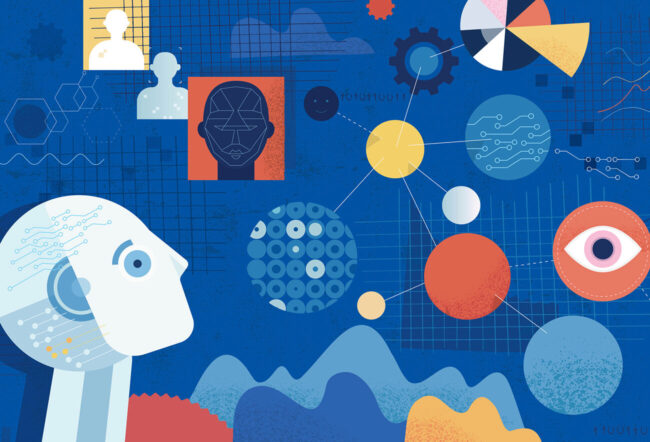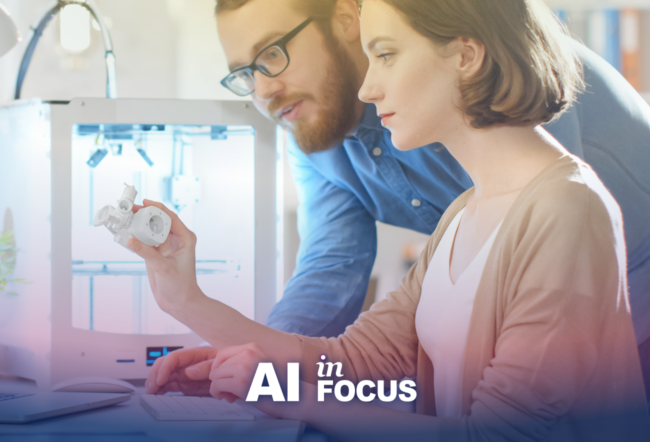The recently announced discovery of the Higgs Boson particle, a subatomic particle thought to give all other matter its mass, is also known as the ‘God Particle.’ Its nickname is no coincidence; scientific discovery again has made material a subject long held within faith; in this discovery, an attempt to understand the building blocks of existence itself.
The strands of human belief and human discovery have long intertwined themselves in the work of astronomer Robert Williams, who has spent a career literally peering into the stars to learn their secrets. Among his accomplishments, he has discovered over 3,000 galaxies with the aid of the Hubble Space Telescope.
Williams is the distinguished research scholar at the Space Telescope Science Institute in Baltimore, Md., and was the institute’s former director for five years to 1998. Williams is also the president of the International Astronomical Union. The institute is a joint operator of the Hubble Space Telescope for NASA.
Williams spoke to Arabic Knowledge at Wharton after a panel discussion on exploration, adventure and leadership at the recent Festival of Thinkers event in Abu Dhabi. He discussed science and the beliefs of people, the need to support pure scientific research, and how science can do a better job of selling itself.
An edited transcript of the conversation follows.
Arabic Knowledge at Wharton: Your former student, Adam G. Riess [an astrophysicist at John Hopkins University] shared the Nobel Prize for Physics in 2011 for the discovery of the accelerating expansion of the universe. "One of the greatest forces in the universe," is how you described it, and that scientists are not aware of any energy force in nature remotely like it. What is the significance of this discovery?
Robert Williams: The idea that this was happening had been floating around for about 10 years. Two teams used the Hubble Space Telescope and looked at distant exploding stars. Looking at that future, they could see the expanding universe was speeding up. What was interesting is that it’s getting faster. No one explained that. Something’s got to be causing that, and we don’t know what it is. It’s a whole new era of astronomy.
Arabic Knowledge at Wharton: Where does Albert Einstein come into this?
Williams: Albert Einstein had predicted this, from a mathematical point of view, through general relativity equations. There definitely was energy. We’re all wondering what it is. He deduced mathematically that something like this can exist, but even he didn’t believe it. He just said this is one of the possible solutions. At the time, he didn’t know the universe was expanding. He thought this entity existed to keep the universe held together. We know that gravity is an attractive force. Before the Hubble and others showed [the universe] was expanding, it was thought it was static. Einstein thought there must be some other force that was present.
Einstein called [the static state] a cosmological constant, and so for 70 years, that concept has existed. Now, all of a sudden, there does appear to be a need to explain why the expansion of the universe is getting faster, and why Einstein’s original deduction was correct.
Arabic Knowledge at Wharton: Why is this discovery important?
Williams: Astronomy is pure science, with virtually no practical applications. So in that sense, you don’t need to know. But on the other hand, fundamental things like these are satisfying freedom to think, satisfying fundamentals like curiosity. There’s forces around and energy existing in the universe, and we know nothing about it. That’s why it’s important.
Arabic Knowledge at Wharton: That sounds like a justification of the study of science itself.
Williams: I do a lot of lectures. People ask how you justify spending money on astronomy in these times. My answer is if you look for the perfect society, it exists in the United States, with food, shelter, clothing and medical care; it’s your local prison. It will provide you with all the necessities of life. Why do people want to get out of there? As important as these fundamentals are, even more important is the satisfaction of curiosity and the basic freedom to explore. When you restrict people’s ability to explore life, including the exploration of where and how it began, life itself loses its meaning and you might as well be in prison. The ability to think and explore — many of us consider that even more important, and a lot of us would sacrifice some of these things [for it].
Arabic Knowledge at Wharton: That is a compelling philosophical answer, but what does this research tell us about our history and ourselves?
Williams: We’re in a truly dramatic time. For the first time in human history we can tell you how all of the structures formed, from the instant of the big bang, to where we are now. Many of the details may be wrong, but not the narrative.
Arabic Knowledge at Wharton: What happened before the Big Bang?
Williams: I don’t know.
Arabic Knowledge at Wharton: Do you believe in the existence of God?
Williams: Again, I don’t know. If it were really important to the deity, he would make it a little bit more possible for people to be aware of his presence. There’s this great force that controls everything, yet it remains hidden. As a scientist, I tend to believe in things that are there and evident. I grew up in a very religious family (some members still are). I’ve studied theology my whole life, but since college, I began to have very strong doubt of the existence of a deity.
Arabic Knowledge at Wharton: Apollo astronaut John Young said a single-planet species could not survive, to justify the cost of further space exploration and research. Do you agree?
Williams: I don’t see it that way. You can’t exclude it as a possibility. I would guess it’s going to take millennia for us to think and take that step. Another way to think of it is, we have this place, why not do what we can so we can keep living in it. Why don’t we take better care of it, understand each other better, and think very carefully about some form of population control?
Arabic Knowledge at Wharton: Does science need to be better at selling itself?
Williams: Without question. That’s one of the most important aspects of science, especially pure science. Everyone knows that chemistry is part of life in everything from dish soap to oil.
We [astronomers] have to do it. If I don’t show you some neat pictures, and show that US$7 billion telescope is not a piece of junk, we will not inspire people so they understand this shows the universe that we are all part of.
It’s easy to do. I find almost no one who, at the end of some discussion says, ‘It ain’t worth it.’ I believe that public communication with astronomy is absolutely essential in itself. The public perception of astronomy has changed because of the Hubble telescope. In Middle America, you would once go into schoolrooms and see pictures of dinosaurs on the walls. For the first time, in the last couple of years, we now see more orders for more images from Hubble.
Arabic Knowledge at Wharton: Have scientists been complacent about this need for communication?
Williams: Most scientists live to do research. When you’re looking at ongoing public outreach, it can be a distraction. Most good research scientists have realized the importance of outreach, but haven’t felt undue pressure to do it. But in general now, with the budgets being cut, the large majority of ongoing public outreach is expanding and you will see more of it. The Internet is fantastic for communication, so I believe that’s encouraging scientific outreach. The public has always been interested in astronomy, and it’s always a very sympathetic audience. It must be visceral. It’s hard to explain galaxies to anyone and not have them interested. Forty years ago, you didn’t have to worry about communicating like this, but now you do. It’s good for scientific literacy.



